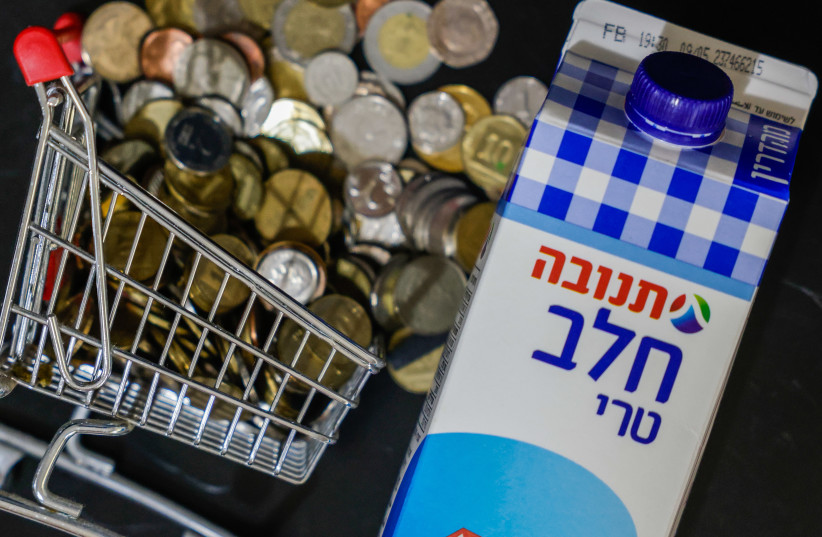The cost of living continues to rise, despite gov’t promises – editorial
The Bank of Israel raised its benchmark interest rate by 0.25% to 4.75% on Monday in an effort to curb rising inflation – its tenth consecutive hike in just over a year. “The tighter monetary policy and moderation of activity abroad are expected to lead to a slowing in the pace of inflation alongside some slowdown of economic activity in Israel,” the central bank said in a statement.
The move came after the Central Bureau of Statistics announced that the Consumer Price Index rose in April by 0.8%, bringing annual inflation over the previous 12 months to 5%.
What does the central bank’s decision mean for the average Israeli? While the country’s banks have reported healthy profits, some in the billions of shekels, for those who have taken out bank loans or mortgages, it means meeting monthly repayments will become even more difficult. The average repayment, according to the Association of Mortgage Advisors, has increased by about NIS 1,150 per month since April 2022.
It should be recalled that a year ago, when the interest rate went down to a record low of 0.1%, Israelis were encouraged to take out mortgages, resulting in an unprecedented purchase of apartments. Since then, the central bank’s decision to incrementally increase the interest rate has led to stagnation in the real estate market and a plunge in the purchase of apartments.
Food price increases, again
At the same time, the country has been hit by another wave of food price increases – including basic items such as milk products. An increase in the price of regulated bread is expected soon.
 Is the price of milk in Israel only going to continue to rise? (illustrative) (credit: MARC ISRAEL SELLEM/THE JERUSALEM POST)
Is the price of milk in Israel only going to continue to rise? (illustrative) (credit: MARC ISRAEL SELLEM/THE JERUSALEM POST)Urging the government to reduce the costs of services under its control, Ron Tomer, president of the Manufacturers Association of Israel, said the Bank of Israel’s decision to constantly raise interest rates is no longer effective.
“In order to lower the high cost of living, the government needs to take active steps by lowering the price tariffs on property tax, electricity and water,” Tomer advised.
We urge the government to pay attention to a survey released this week by the Israel Democracy Institute (IDI) on the impact that the ever-increasing cost of living is having on Israel’s citizens.
It found that the majority of the public (60%) believes that the government is primarily responsible for the high cost of living; 40% cited the high cost of living as the issue that concerns them most; 80% said they had to give up one or more item of expenditure, particularly leisure activities and vacation in Israel and abroad; and 30% have refrained from buying basic items, food or cars.
“The Israeli public cites the high cost of living (and food prices in particular) as the most worrying issue it faces, and blames the government, which it views as responsible for high prices and high housing costs,” said IDI’s Daphna Aviram-Nitzan. “Moreover, it appears that the public is dissatisfied with how the government has handled this issue, which is not adequately addressed in the state budget, and gives the government a poor grade for its functioning regarding the cost of living and housing costs.”
“The dam has burst, and almost all the major food companies have raised their prices, some of them significantly,” added Prof. Itai Ater, a senior fellow at IDI. “It would seem that the food industry, which in the past was wary of a backlash from the public and the government, is taking advantage of the current situation in which public and government attention is focused on other issues, to raise prices and increase their profits at the public’s expense.”
As the government prepares to pass the budget, it should not forget its pledge to voters before the last election to rein in the cost of living. Setting an example by cutting the costs of basic goods and services in state-run companies would encourage food conglomerates to cut the prices of basic products as well, benefitting the Israeli public as a whole.
That, in turn, might enable the Bank of Israel to stop raising interest rates, easing the financial burden on the average Israeli and providing a much-needed boost to a resilient economy eager to get back on its feet after the debilitating COVID-19 pandemic.





Comments are closed.